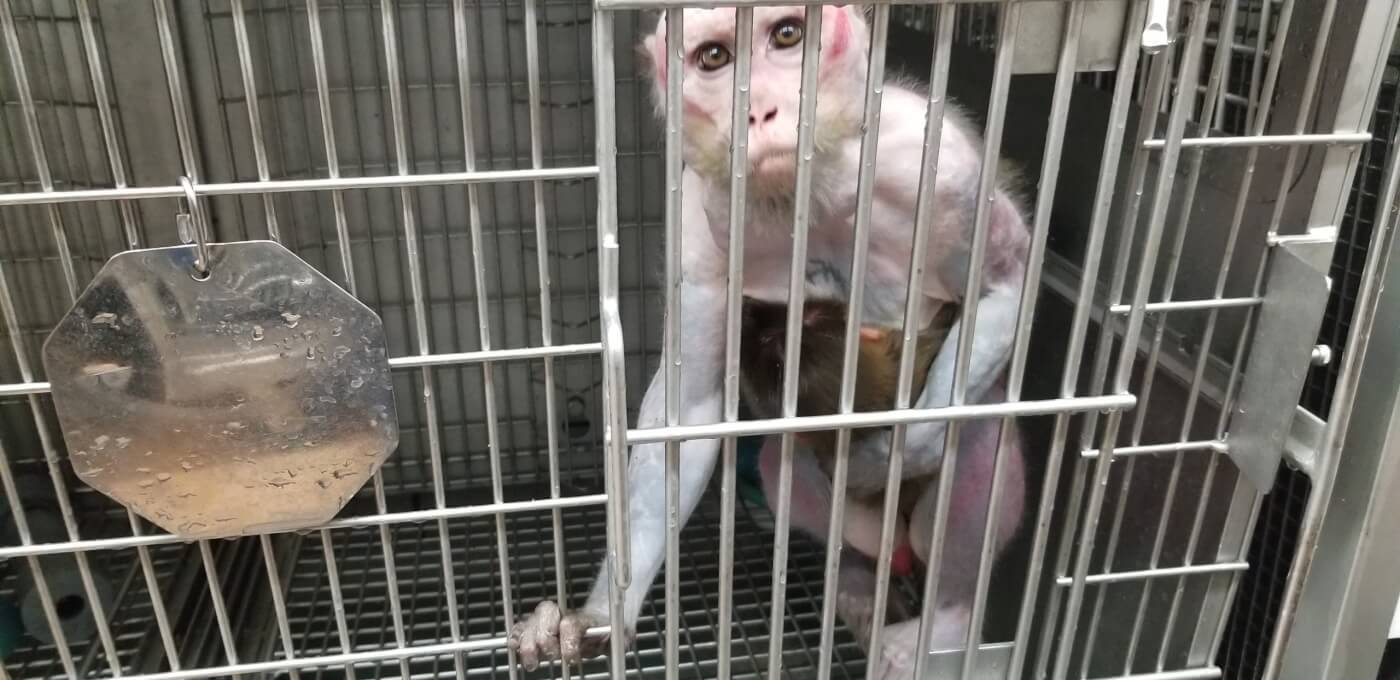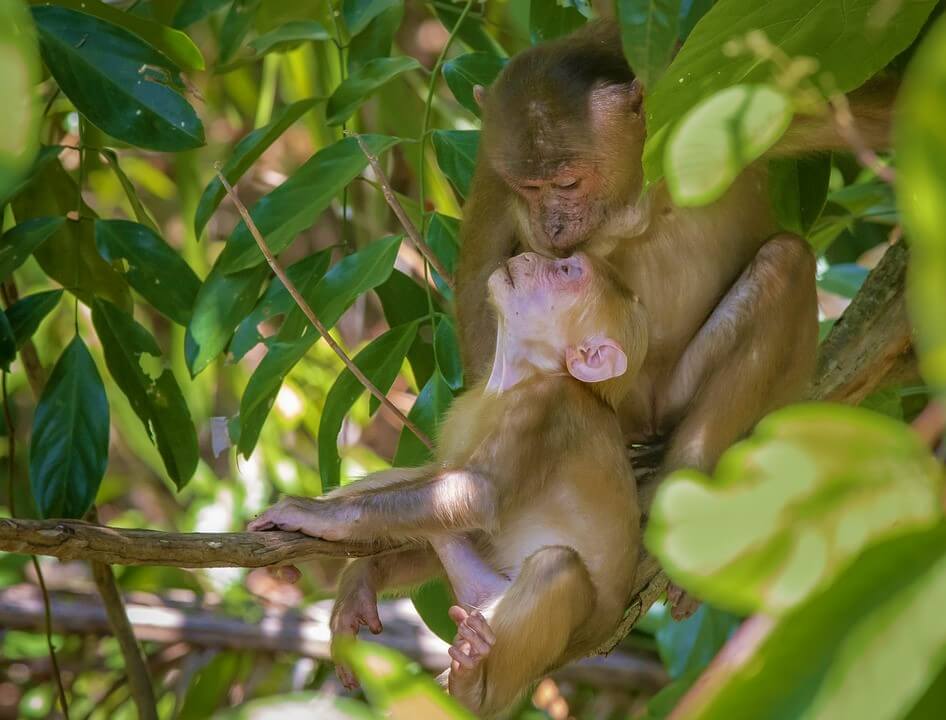Mother’s Day is a time to recognize all mothers. While we spend this holiday (May 9) cherishing moms for all the important work they do, let’s also think about those, like Princess, who are deprived of the opportunity to hold and nurture their babies. This mother macaque has been imprisoned at the Wisconsin National Primate Research Center (WNPRC) since at least 2014.
Princess didn’t get her name from the WNPRC, where, in her despair, she apparently pulled out her own hair, leaving her body nearly bald for at least six years. In the laboratory where she’s held, she’s referred to as a number—rh2519—and treated that way, too. Princess received her fitting name—and likely the first kindness she’d ever experienced—from a PETA investigator who went undercover at the WNPRC. The investigator named her Princess to reflect her sweet-natured personality and gentle way of accepting treats.
Trapped in a lab. Skulls cut open. Restrained. Eyes clamped open. Forced to look at screens for hours.
This isn't a horror movie — it's a real life experiment that owls at @JohnsHopkins are forced to endure. pic.twitter.com/P8dDZ7dRlS
— PETA (@peta) October 31, 2020
Despite her obvious misery, experimenters forcibly bred Princess and made her give birth alone in a wire-bottomed cage. At the WNPRC, workers typically separate babies from their mothers when they’re only a year old. Experimenters would eventually take all of Princess’ babies from her so that they could torment and kill them in tests. The baby she gave birth to at the WNPRC in May 2020 will turn 1 year old just before Mother’s Day (if she’s still alive). If lab workers haven’t separated them yet, they likely will soon.
When their beloved babies are snatched away, it’s deeply traumatic for animals like Princess. Macaques are devoted, protective mothers who show affection to their young by lovingly gazing into their eyes, kissing them, and using special vocalizations to speak to them (aka “baby talk”). In nature, when a mother monkey’s infant dies, her grief can be so devastating that she may carry the limp body around for days. Princess, who has been forcibly bred at the WNPRC for years, has likely gone through this pain multiple times.
The depth of Princess’ heartbreak and misery has been obvious for all to see: Over the years, workers reported that hair was missing from all over her body, including her head, shoulders, back, arms, legs, hips, and rump. Workers gave her wooden logs and coconuts to pick at, in an attempt to stop her self-mutilation. But a log isn’t enough to take away the monotony, deprivation, and stress of a life sentence in a cage. On numerous occasions, PETA’s investigator also noted that Princess had diarrhea. And by the time her baby was 2 months old, she, too, was missing patches of hair from her back.
This suffering isn’t isolated. PETA’s investigation revealed a consistent pattern of injuries caused by animals to each other and to themselves at the WNPRC, likely as a result of the severely stressful conditions in the lab. Workers confined monkeys to barren metal cages every day and night, sometimes alone or with an incompatible cagemate—both of which have caused these highly social, intelligent animals frustration and psychological distress. PETA investigators found one monkey who had lost part of an ear in a fight with her cagemate. Another imprisoned monkey had picked compulsively at a wound on his leg, mutilating it down to the muscle.
Don’t Let the WNPRC Keep Up This Cruelty—Take Action for Animals Like Princess This Mother’s Day
There’s no bond quite like the one between a mother and her young. Like all mothers, Princess wants to comfort and care for her babies—and she deserves a life in which experimenters don’t deprive her of her most important relationships. This Mother’s Day, take action for her and other mothers suffering at the WNPRC by demanding that the lab release all the animals to reputable sanctuaries:
Help Shut Down the National Primate Research Centers
The post This Mother’s Day, Help Mothers Like Princess Imprisoned at the WNPRC appeared first on PETA.


